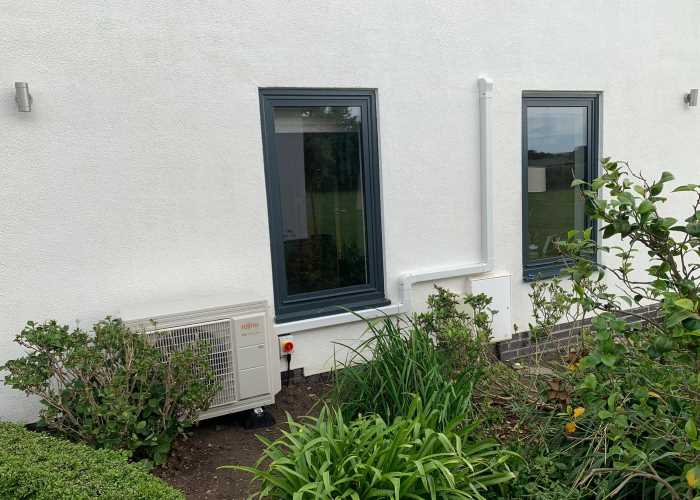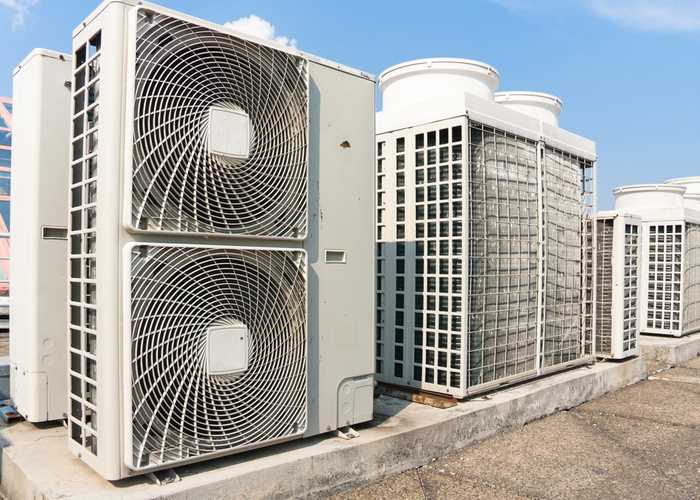Whenever you make significant alterations to a property, you need to ensure you comply with all relevant regulations, including planning permission. And in some cases, this can apply to the installation of climate control systems.
Whilst this post is not intended (nor should it be taken) as official legal advice, it will walk you through some general guidance on AC installation in both domestic and commercial properties.

In most cases, installation of domestic air source heat pumps falls under permitted development, that is, work that can be carried out without a planning application. This is because the external units installed have little impact on the property and its surroundings.
So as a general rule, no, you do not need planning permission to install a small AC system in a domestic property, provided your external unit meets the following regulations:
There are, however, some exceptions to this rule. It’s likely you’ll need permission from your Local Planning Authority to install an AC system if your property sits on designated land, such as:
Separate rules also apply if the property in question is a flat or a listed dwelling, and again if you’re looking to install a central air conditioning system with a larger external unit. Best practice is to always seek advice from your Local Authority, even if you believe your project to fall under permitted development. If you go ahead with your installation, and it turns out permission was in fact needed, you may well end up having to remove the system in its entirety.

The situation here is a little more complex. It all depends on the specifics of the property, the type of commercial air conditioning you intend to install, and the impact this may have on the surrounding environment. For example, how close the external units sit to the perimeter of your site, or if they cause disruption to access.
Again, follow best practice by contacting your Local Authority to discuss the proposed project before committing to any installation work. A reputable contractor will work with you to ensure your system design meets all legal requirements.
As well a planning permission, take the following into account for your installation project:
Listed building consent - if you own a listed property, you may need both planning permission (which deals with the external alterations) and listed building consent (which pertains to the character of the property itself). If this is the case, it’s usually quicker, and cheaper, to apply for both at the same time.
Noise pollution - whilst there aren’t any specific regulations around the noise of your AC system, it is a polite consideration - if your neighbours raise a noise complaint it can lead to an uncomfortable dispute. Thankfully, modern systems are relatively quiet, but look at additional measures such as considered placement and natural soundproofing.
F-Gas regulations - anyone working with fluorinated gases (F-gases) must be qualified to do so, and since these are the refrigerants used in air conditioning systems, you’ll need to make sure you choose an accredited contractor. For larger installations in commercial and industrial settings, you’ll also need to ensure you meet your own legal obligations under F-Gas Regulations.
Building regulations - in some cases, you might need building regulations approval. At Loughborough Air Conditioning, we’re members of the BESCA Competent Person Scheme, allowing us to self-certify AC installations under Part L and Part F of the Building Regulations in England and Wales.
